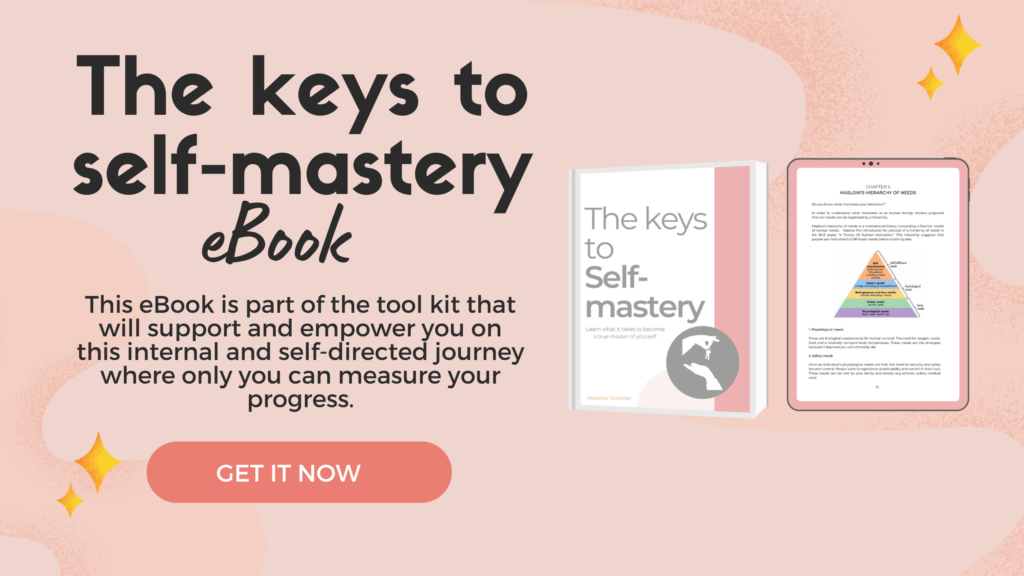
In a world that often emphasises the value of social connections, there’s an important distinction to be made between being alone and feeling lonely.
Many people associate solitude with a sense of isolation or sadness, but the truth is that being alone can be a fulfilling and rejuvenating experience. 😊
In this blog post, I will explore the nuances of being alone versus feeling lonely, understanding the importance of solitude, and embracing the positive aspects of both states.
Let’s get to it. 💕
The Difference Between Being Alone and Feeling Lonely:
Being Alone:
Being alone is a state of physical solitude, where you find yourself without the company of others. It can occur by choice or as a natural consequence of circumstances. Spending time alone provides an opportunity for self-reflection, relaxation, and personal growth.
It allows you to engage in activities that bring you joy, pursue hobbies, or simply enjoy a moment of peace. Being alone can be a deliberate choice, a time to recharge and connect with oneself. 🥰
Feeling Lonely:
Loneliness, on the other hand, is an emotional state that arises from a perceived lack of meaningful connections. It’s possible to feel lonely even in a crowded room if the connections are superficial or unfulfilling.
Loneliness is often characterised by a sense of emptiness, isolation, or a longing for deeper human connections. It’s a complex emotional experience that can impact mental and physical well-being. 😟

Embracing the Positive Aspects of Being Alone:
1. Self-Discovery:
Being alone provides an opportunity for self-discovery. It allows you to explore your thoughts, feelings, and interests without external influences. Use this time to reflect on your goals, values, and aspirations. Self-discovery is a crucial aspect of personal growth and can lead to a deeper understanding of oneself.
2. Independence:
Embracing solitude fosters independence. When you’re comfortable being alone, you become more self-reliant and less reliant on others for your happiness. This independence can empower you to make decisions based on your own needs and preferences, leading to a more authentic and fulfilling life. 🥰
3. Creativity:
Solitude often sparks creativity. When you’re alone with your thoughts, you have the mental space to generate new ideas, think critically, and engage in creative pursuits (yaay). Many artists, writers, and innovators find inspiration in moments of solitude, leading to the creation of meaningful and impactful work. 🎨
4. Rest and Rejuvenation:
Being alone allows for rest and rejuvenation. In a world filled with constant stimuli, taking time for solitude can be a form of self-care. It provides an opportunity to relax, recharge, and focus on activities that bring you peace and joy, contributing to overall well-being.

Addressing the Challenges of Feeling Lonely:
1. Cultivating Meaningful Connections:
If loneliness arises from a lack of meaningful connections, focus on cultivating relationships that nourish your soul. Seek out individuals who share your values and interests. Join clubs, organisations, or communities where you can meet like-minded people. Focus on getting yourself out there. Quality connections are often more fulfilling than a large social circle. 🫂
2. Volunteering and Giving Back:
Engaging in volunteer work or contributing to your community can alleviate feelings of loneliness. By helping others, you not only make a positive impact on the world but also connect with individuals who share a common purpose. Volunteering provides a sense of belonging and fulfillment.
3. Seeking Professional Support:
If loneliness becomes a persistent and overwhelming emotion, maybe consider seeking professional support. A therapist or counselor can provide guidance and a safe space to explore the root causes of loneliness. Addressing these issues with professional help can lead to a more fulfilling and connected life. 🫶
Finding Balance:
The key to a fulfilling life lies in finding a balance between being alone and fostering meaningful connections. Embrace solitude as a time for self-discovery, creativity, and rejuvenation. At the same time, actively cultivate relationships that bring joy and fulfillment. Recognise that both states are essential for a well-rounded and satisfying life. 💕
Conclusion
Being alone and feeling lonely are two distinct experiences, each with its own set of opportunities and challenges. Embracing solitude allows for self-discovery, independence, creativity, and rest. However, if loneliness creeps in, it’s crucial to address it by cultivating meaningful connections, volunteering, or seeking professional support. You are not alone. ❤️
Understanding the nuances between being alone and feeling lonely empowers you to navigate both states with intention and purpose. Ultimately, finding a balance between solitude and social connections contributes to a rich and fulfilling life. Embrace the positive aspects of being alone, foster meaningful connections, and savor the journey of self-discovery in this beautiful dance between solitude and companionship.
Pin this post for a reminder 📌 👇

Related Blogs
Things to Say “No” to for you to Live a Happier Life
How to Stop Settling For Less Than You Deserve
How to Become the Best Version of Yourself: A Guide For 20-Somethings
Self-mastery is a strategic and lifelong process of understanding one’s own motives and values, as well as their impact on other people, the world around us, and our personal relationships. 😊
Self-mastery is one of the most important skills we can develop as human beings. If we do not learn to master ourselves, we will never be able to lead others effectively. We need to understand who we are and what makes us tick so we can make good decisions and take effective actions.
Living a self-sufficient lifestyle requires mastering various skills that enable us to function independently from everyone else. Self-mastery is not about learning how to become perfect or an expert in everything.
Instead, it’s about understanding our weaknesses so that we can work on them until they no longer hold us back from living the life that we want. It’s also about discovering our strengths so that we can leverage them instead of hiding them away. 😌
If you want to master any skill, whether it’s playing an instrument, cooking, or writing, there are three steps you need to take. First, you need to learn the basics. Second, you need to practice those skills until you feel comfortable with them. Finally, you need to put in the extra effort to master them. 🏆
Once you understand these concepts, you will be able to apply them to anything you do. You can use them to become more confident in yourself, improve your relationships, and even help others.
There are many ways to self-mastery, but not all of them are effective for every individual. Luckily, there are certain principles that most people can follow to improve their quality of self-mastery in a sustainable way. Here are five easy steps you can take today to start practicing self-mastery:
Step One: Reflect and define your values
Before you can begin to strengthen any areas that might be holding you back, it’s critical to understand what exactly you want out of life.
There are many ways to define your values, and they can change as you grow and change connected to the world around you.
However, there are some aspects of self-mastery that remain important for everyone, no matter what stage of life you’re at. Throughout your journey toward self-mastery, be sure to stay true to these values so that you can continue to grow and evolve as a person.
⭐ Self-awareness
Being self-aware means recognizing the motives and values behind your actions, words, and everyday habits. When you don’t recognize your own values and motives, you make decisions and engage in behaviors that don’t align with your authentic self. This lack of self-awareness makes it difficult to grow and learn.
⭐ Self-esteem
Self-esteem is about feeling worthy of yourself as a person. When you don’t feel like you’re deserving of good things in life, it’s easy to get caught up in materialistic obsessions and forget how important personal growth is. A healthy self-esteem is essential for self-mastery.
⭐ Self-honesty
Healthy self-honesty means holding yourself accountable for the actions you take and the things you say. When you don’t practice self-honesty, you’re often lying to yourself about your motives and values. Over time, this dishonesty can lead to emotional and mental exhaustion.

Step Two: Define your goals and identify your strengths
Even if you’re practicing self-mastery, you can’t move forward until you first define your goals and strengths.
There are many ways to do this, but one effective method is to list out all of your values and then put a check next to each one that you agree with. ✍️
Once you’ve completed this exercise, you can use it to develop a list of goals and strengths that are the most prominent aspects of your identity. It’s important that your strengths are at the top of your list.
This is where you’re going to spend the most time and energy during self-mastery, so you want to make sure it’s something that truly matters to you. Once you’ve identified your top five to ten strengths, you can start to define goals that build off of them.
For example, if one of your strengths is self-discipline, you might choose the goal of developing a daily routine.
If you could be the best version of who you are – someone that kicks ass and follows through on the things they say they’re going to do – how would this affect all the areas of your life?
INTRODUCING
The Keys to Self-Mastery eBook
The information provided in this eBook is not simply theory, it gives practical actions that will aid you in making personal changes to create amazing results.
Click here to purchase your copy now! 👉 I WANT A COPY!

Step Three: Build resilience through practice
The best way to strengthen any skills is through consistent practice.
This may sound obvious, but it’s easy to get caught up in the idea that self-mastery is a something that you can work on for a couple of months here and there then BAM.
There are two ways to become more successful at anything. One is by learning new things, and the other is by mastering yourself. Learning new things is easy, but mastering yourself requires effort and dedication. It takes practice and hard work to become better at something. 🤷♀️
Daily practice is what enables self-mastery to become a lifestyle. Practice is about doing things over and over again until they become second nature.
When someone believes that it’s a once-in-a-lifetime type of experience, they’re less likely to make an effort to improve their skills. Don’t let this be you. Understand that with consistency, hard work and self-discipline you can achieve anything you want in this life. 🥰
Step Four: Develop independence and self-care
Once you’ve built the self-awareness and self-esteem to appreciate your strengths and define your goals, you can start to cultivate independence. 💪
Independence is one of the most important aspects of self-mastery because it enables you to choose your own actions and make your own decisions.
Self-care is another important aspect of self-mastery that’s often overlooked. It’s important to take care of yourself both physically and emotionally so that you’re able to make healthy decisions and communicate with others effectively.
Self-care includes eating a healthy diet, getting enough sleep, and finding ways to relax and decompress so that you’re not constantly overwhelmed by life. 🛀
These habits will help you make better decisions and be more confident when speaking to others.

Step Five: Mapping your progress and continuous improvement
Once you’ve identified your strengths and goals, you can start to map out your progress.
This can be done through regular journaling and visualizing your journey toward self-mastery. Visualizing your journey to self-mastery can be done by creating a vision board or writing out a description of what your ideal self would be like.
Visualization is an excellent way to ground your thoughts so that you’re not constantly thinking about how far you have left to go, but instead how far you’ve already come. 😄
Regular journaling can also be used to help you stay focused on your daily goals and progress. This can be done by writing about your feelings surrounding your progress and why you chose to journal.
Journaling can also be used to help you identify your strengths so that you can leverage them more often.
Self-mastery: The Bottom Line
Self-mastery is an exciting journey of self-discovery, growth, and self-improvement. It’s important to remember that it doesn’t happen overnight, and it’s not something that happens just one time. It’s a lifelong process that requires consistent effort to make it happen. 😌
Remember to stay true to your values and motives, hold yourself accountable, and stay resilient while you continue to grow.
Self-mastery is an important part of success in life. It involves being able to control our thoughts, feelings, actions, and reactions. This skill helps us become better leaders, parents, friends, and employees.
Important: Mastery in this sense does not mean control in the negative sense; it is an awareness that you are the universe, and you and all that surrounds you are flowing together in harmony into a glorious dance of your own making.
By becoming a master over what controls everything, you are spontaneously becoming the master over everything. Mastery is like playing a game, in which you can always level up and gather more wisdom and experience. ♟️
Remember to check out The Keys to Self-Mastery eBook to start your journey to a self-sufficient lifestyle.
Pin this post for a reminder 📌 👇

Related Blogs
The Power of Self-Discipline & Why You Should Have It
Everything You Need to Know About Habits
How to Overcome Fear & Get What You Want
Did you know that people on my email list sometimes get exclusive discounts on my products? Join the community and save yourself some coins!
Freshly-squeezed inspiration, and no-nonsense tips + tricks to improve your life delivered to your inbox weekly.
Subscribe to my newsletter
Subscribe
You're all signed up!
Be sure to whitelist our email address so that all the goodies make it to your inbox.
